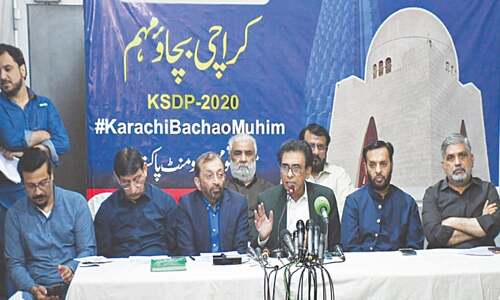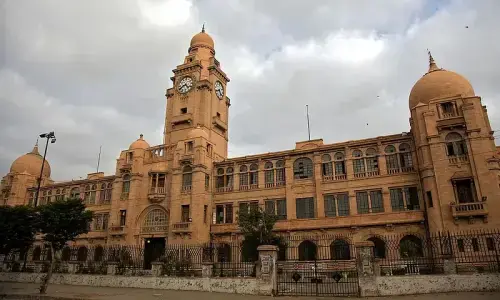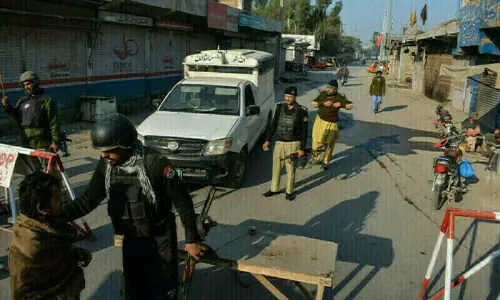KARACHI: “The foreign policy of both India and Pakistan seems to be media-driven,” said journalist Mazhar Abbas at a seminar titled ‘Indo-Pak relations and role of media’ at the HRCP office on Friday.
Journalists and civil society activists had gathered there to try to understand the increasingly confrontational media presence between both countries, and how both countries’ political narrative as well as the opinion of the common man is being shaped by this aggressive onslaught.
Mr Abbas explained how professionalism in the media was at one time upheld and sacred, but no longer is this characteristic safeguarded in both countries.
During the time of movements, conflicts or when tensions between countries were at their high, the media played a very important role, he explained. “The media can either flare things up further or defuse the situation.”
From the 1972 language riots to the Agra talks, Mr Abbas gave several examples in support of this view. “The Agra talks would not have failed if Pervez Musharraf’s press conference did not take place. The timing of the press conference, its exposure, and the consequent reactions to it sabotaged the positively progressing talks,” he said.
“In Pakistan today, there is a very aggressive media,” he elaborated. “However, the transformations I have seen in India show that the country’s secularism is dying, and is being replaced by an extremist narrative. The biggest difference between Pakistan and India is that in India, extremist politics is being supported by the electorate. This is not the case in Pakistan.”
Many Pakistani journalists, as a result, stopped appearing on Indian news channels because of the distinct change in the tone that most of the times is very aggressive and needs to be controlled.
‘Era of disinformation’
Short story writer and columnist Zaheda Hina spoke about the ‘power’ of the media that she said was in fact a mild word to describe it. “We are in an era of disinformation as well as in a quagmire of silence.”
At one time, journalism was considered a holy profession, but according to Ms Hina it has mutated much over the years.
“I knew much of what was happening in India till about two years ago, but as I have not been there in this time, therefore, I did not get a chance to experience the changes myself. However, be it in Pakistan or India, saner elements are becoming hard to find and the sooner we accept this reality the better so that we can rectify it.”
Journalist Wusatullah Khan, who works for DawnNews as well as BBC, was also present and recalled the type of headlines in newspapers he would read regarding India when he was young; almost all were on the basis of religion and propagating the concept of ‘us’ and ‘them’.
Mr Khan recalled the first time he met a Hindu when he was in Class V. “Kanhaiya Lal was a child, a Pakistani. He got enrolled in our school and when we found out he was Hindu, all of us students gathered around him to eye him closely to spot the difference. Because the Hindu we were shown in the 1965 and 1971 posters was very different,” he recalled.
He said it was the need of the hour to find the middle ground and work together to improve ties. “The demarcation created in the generation that experience Partition still persists today, though it is in a less potent state. As a country we don’t need to have brotherly relations with India, but being an enemy is also not a requirement. In fact, a working relationship between the two is possible, which should be on a one-point agenda that we will not fight each other.”
Published in Dawn, August 5th, 2017


































